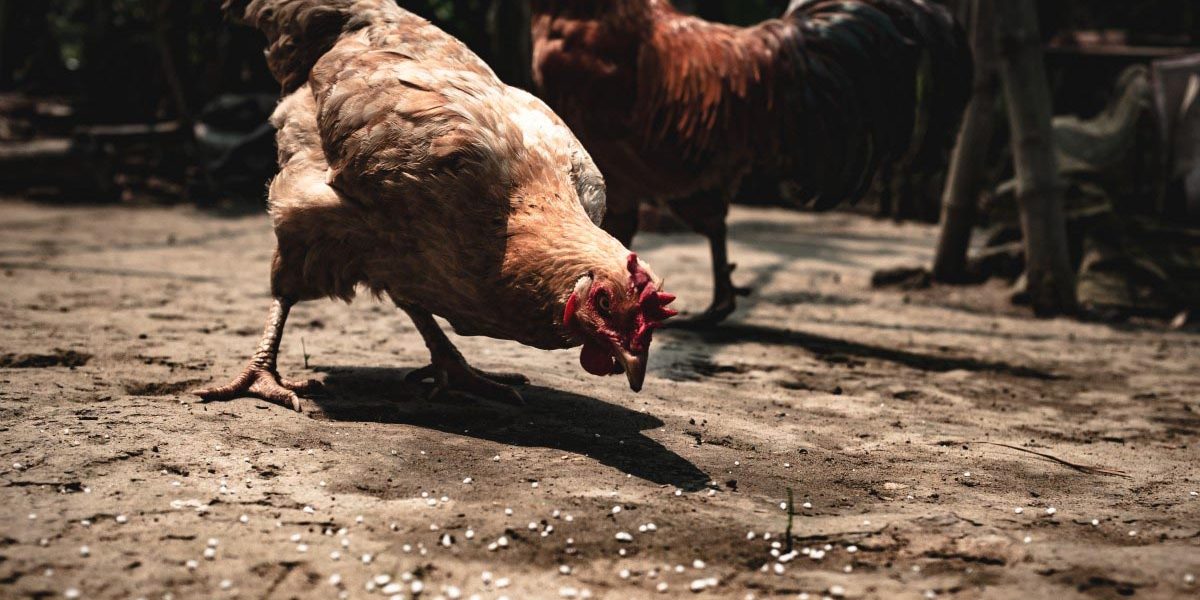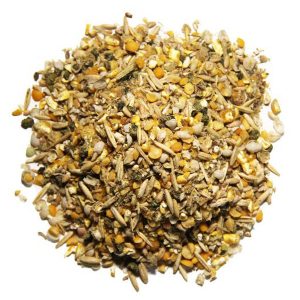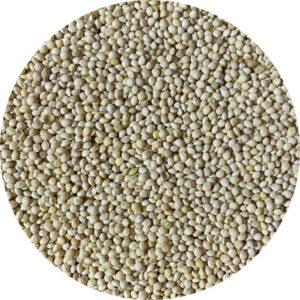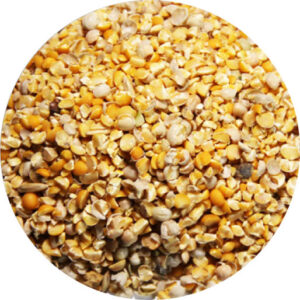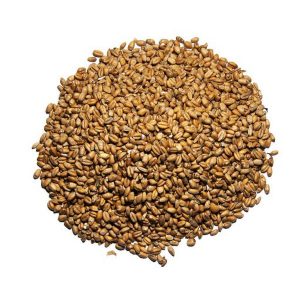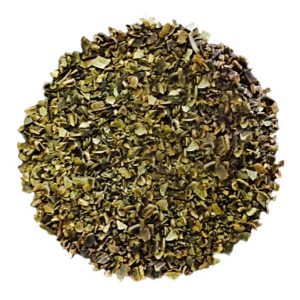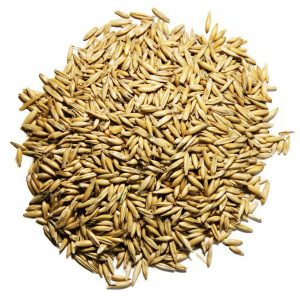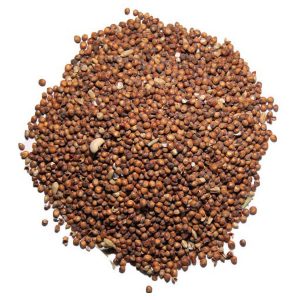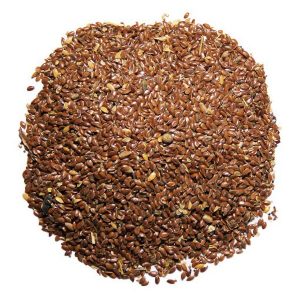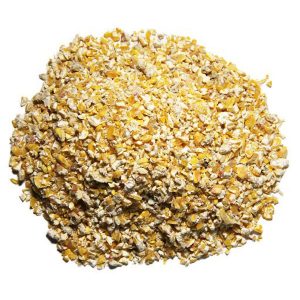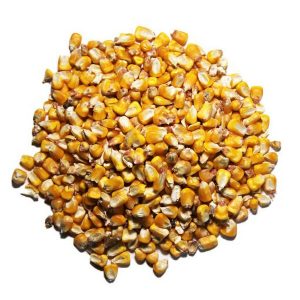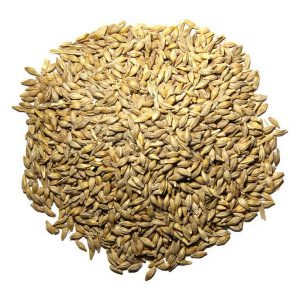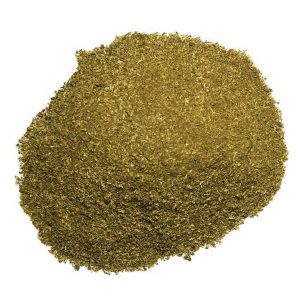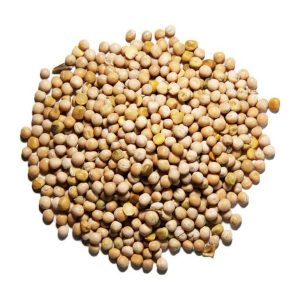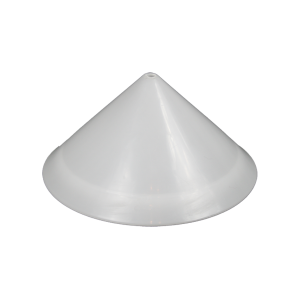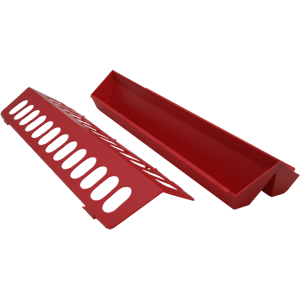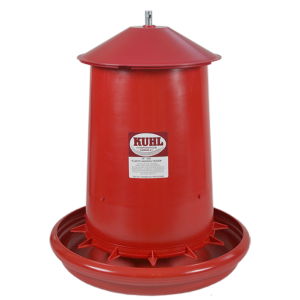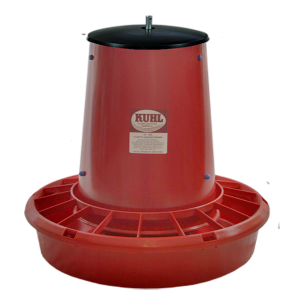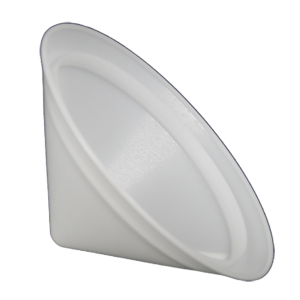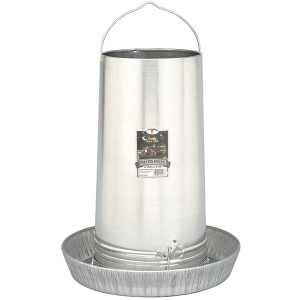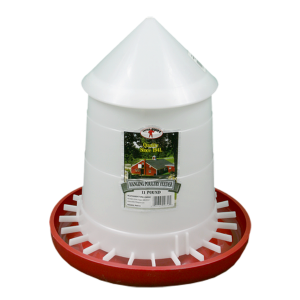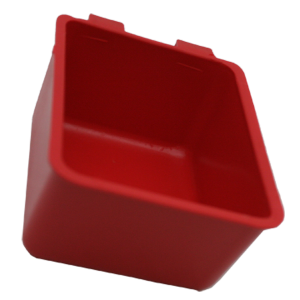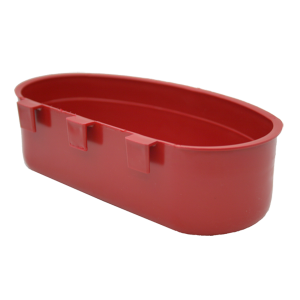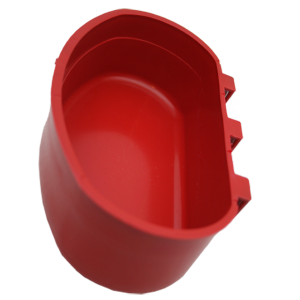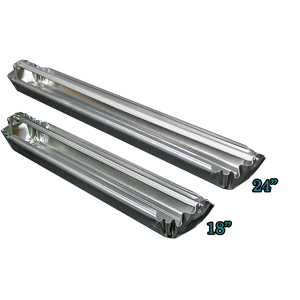Cockerels and Pullets that are raised for butchering require specific food for meat birds to keep them healthy and ensure they grow quickly. Their diet is different from chickens raised for laying eggs, and their diet changes as they transition from a chick into a pullet or cockerel.
Feeding Meat Birds
As your chickens grow, they will require less protein concentration in their feed. Starter feed typically contains over 20% protein whereas Layer feed contains around 16%.
Even though the percent of protein may decrease with age, the amount of feed your meat birds consume will most certainly increase with age. The following guidelines show you how much each bird is likely to eat:
- Chicks eat nearly 1 pound of feed per week for 6 weeks, or 6 pounds total
- Cockerels and Pullets eat 1 pound of feed per week or more
It is possible to make your own chicken feed; however, we find that commercial mills are able to produce in such large scale that they often deliver feed for less cost that if you made it yourself. The other benefit of purchasing commercial feed is that you don’t have to worry about managing the correct proportions and ensuring freshness of each ingredient.
Commercial feed comes in three primary forms:
- Mash: Feed that has been crushed, but its components are still identifiable by chickens
- Pellet: Reconstituted mash formed into small equally sized bites that chickens consume quickly
- Crumble: Broken up pellets that take longer to eat and keep chicken occupied
If you decide to take it upon yourself to make your own food for meat birds, we recommend visiting the animal science website at ucdavis.edu. They have a publication called Feeding Chickens that offers the following proportion recommendation for grower feed. This feed may not result in the most optimal feed conversation rates for meat birds, but the recipe may give you guidance to start experimenting with mixes:
- 50% Coarsely ground grain (e.g., corn, milo, barley, oats, wheat, rice, etc.)
- 18% Wheat bran, mill feed, rice bran, etc.
- 16.5% Soybean meal, peanut meal, cottonseed meal, sesame meal, etc.
- 5% Meat meal, fish meal, etc.
- 4% Alfalfa meal
- 2% Yeast or milk powder
- 2% Bone meal
- 2% Ground limestone, marble or oyster shells
- 0.5% Salt with trace minerals
- Vitamin Supplements
The final consideration you have related to feed is deciding how you plan to deliver the feed to your meat birds. We offer the following feeders because they are easy to clean, easy to fill and prevent your birds from roosting (and pooping) above the feed:

